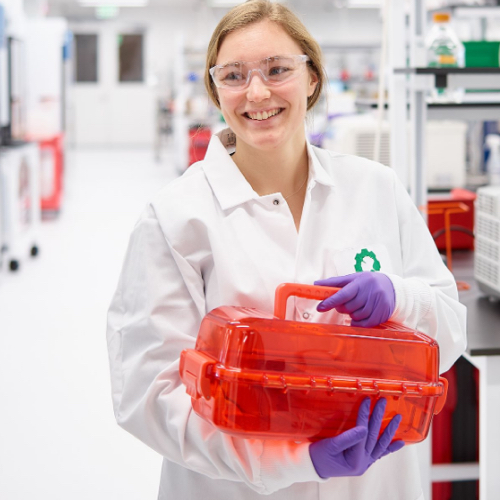Today we’re thrilled to announce a new partnership with Ensovi!
Ensovi has a platform for the cell-free transformation of carbon dioxide (CO2) into Acetyl-CoA, which can then be converted into many other products, such as precursors to flavorings, supplements, pharmaceuticals or even fuels, using Ensovi’s end-to-end, cell-free biosynthesis approach.
Ensovi will leverage Ginkgo Enzyme Services to help optimize this process.
Under the terms of the agreement, we will support the discovery and development of enzymes needed to bring Ensovi’s cell-free biomanufacturing platform to market.
Companies in the chemical industry are searching for more sustainable, yet cost-competitive, manufacturing alternatives to decarbonize supply chains. The ability to use CO2 as a feedstock can enable carbon-neutral or -negative manufacturing processes with reduced feedstock costs and risks, as well as provide better alternatives for companies that have costly CO2 waste streams.
By partnering with Ginkgo to discover and design bioengineered market-ready enzymes, Ensovi anticipates being able to extend its cell-free biomanufacturing system broadly into fine and commodity chemical manufacturing.
“We believe our modular cell-free system holds powerful potential to economically transform CO2 – the primary greenhouse gas emitted through human activities – into so many different useful materials. Our collaboration will draw on Ginkgo’s extensive enzyme discovery and design capabilities, allowing us to accelerate our continuous process of pathway discovery and enzyme optimization to further reduce costs and expand our supported product portfolio.”
Richard Harrison, co-founder and CEO of Ensovi
Ginkgo Enzyme Services offers partners end-to-end support for the discovery, engineering, optimization, and scale-up of enzymes for diverse applications. Through the partnership, Ginkgo will leverage its suite of services, including metagenomic enzyme discovery, as well as enzyme optimization for function and stability to support Ensovi’s applications.
Ensovi’s cell-free biomanufacturing system is a pioneering solution for the chemical industry and beyond. We’re eager to leverage our synthetic biology platform and advanced enzyme discovery and development capabilities to enable Ensovi to optimize and extend the cell-free transformation of CO2 into sustainably produced products.
